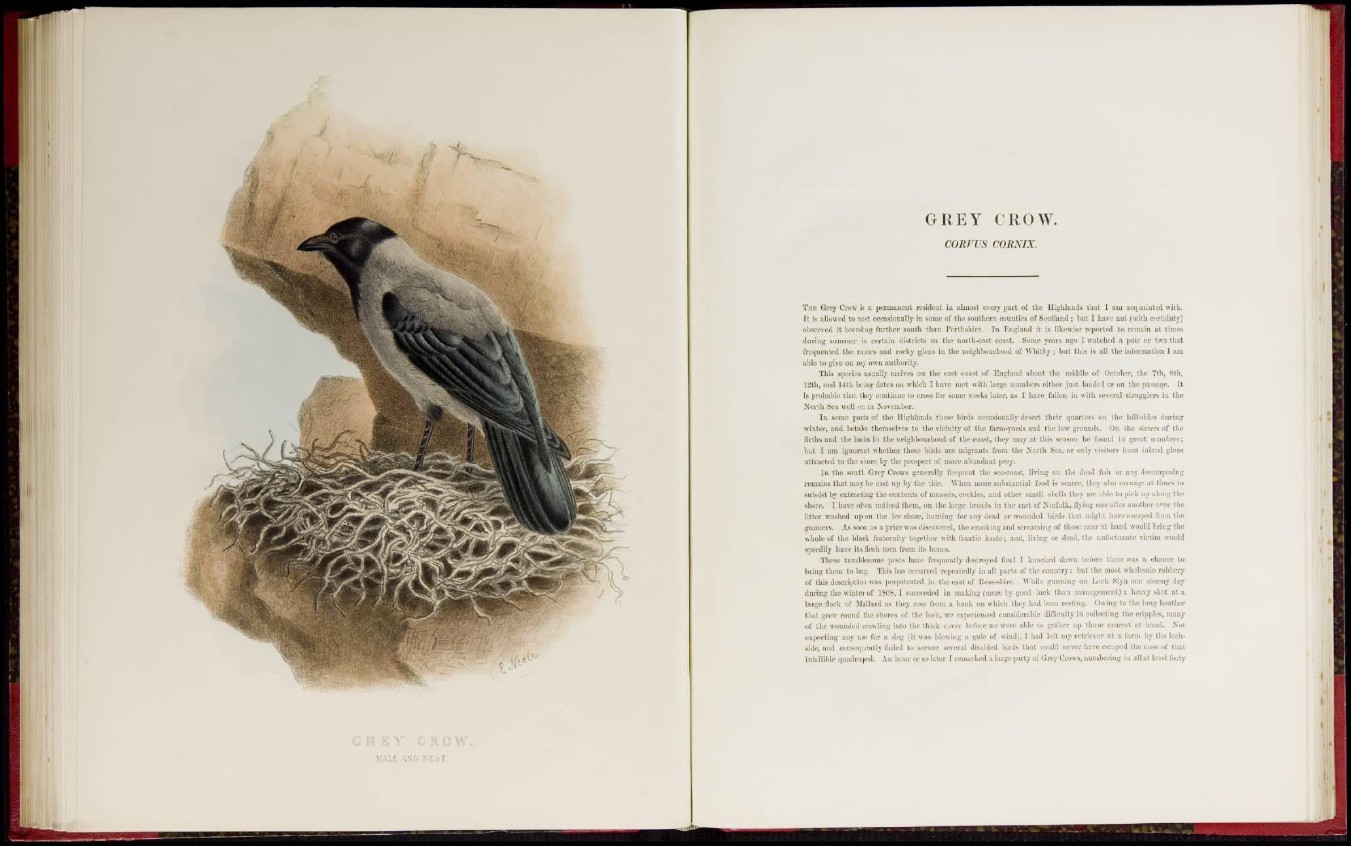
. . . . . .
G R E Y C R O W.
CORPUS CORN1X.
THE Gray Crow is a permanent resident iii almost every part of tlie Highlands tliat 1 am acquainted with.
I t is allowed to nest occasionally in some of the southern couuties of Scotland ; but I have not (with certainty)
observed it breeding further south than Perthshire. In England it is likewise reported to remain at times
during summer iu certain districts on the north-east coast. Some years ago I watched a pair or two that
frequented the moors and rocky glens in the neighbourhood of Whitby; but this is all the iirformation I am
nblo to give on my own authority.
This species usually arrives on the east coast of England about the middle of October, the 7th, 8th,
18th, and 11th being dates on which I have met v,ilh large numbers either just landed or on the passage. It
is probable that they continue to cross for some weeks later, as I have fallen in »ilh several stragglers in the
North Sea well on in November.
I n some parts of the Highlands these birds occasionally desert their quarters on the hill-sides during
winter, and betake themselves to the vicinity of the farm-yard- and the h>w grounds. On the shores of the
firths and the lochs in the neighbourhood of the coast, they may at this season be found iu great, numbers;
but 1 am ignorant whether these birds arc migrants from Ihe North Sea, or only visitors from inland glens
attracted Iu the shore by the prospect of more abundant prey.
I n the south Grey Crows generally frequent the sea-coast, living on the dead fish or any decomposing
remains that may be cast up by the tide. "When more substantial food is scarce, they also manage at times to
subsist by extracting the contents of nuissids, cockles, and oilier small shells lliey are able lo pick up alone the
shore. I have often noticed them, oil the large broads in the easl of Norfolk, llj big one after another over the
litter washed up on the lee shore, hunting for any dead or wounded birds that might have escaped from the
gunners. As soon as a prize lias discovered, the croaking and screaming of those near at hand would bring the
whole of the block fraternity together with frantic haste ; and, living or dead, the unfortunate victim would
speedily have ils llesh lorn from its hones.
These troublesome pests have frequently destroyed fowl I knocked down before there was a chance to
bring them to bag. This has occurred repeatedly in all parts of the country; but the most wholesale robbery
of this description was perpetrated iu the cast of ltoss-shire. While gunning on Loch Slyn one stormy day
during the winter of 1SGS, I succeeded in making (more by good luck than management) a heavy shot at a
large lloek of Mallard as they rose from a bank on which they bad been resting. Owing to the long heather
thut grew round the shores of the loch, we experienced considerable difficulty in collecting the cripples, many
of the wouuded erawUng into the thick cover before we were able to gather up those nearest at hand. Not,
expecting any use fur a dog (it was blowing a gale of wind), I had left my retriever at a farm by the lochside,
and con sequent lv failed to secure several disabled birds that could never have escaped the nose of that
infallible quadruped. An hour or so later I remarked a large party of Grey Crows, numbering in all at least forty